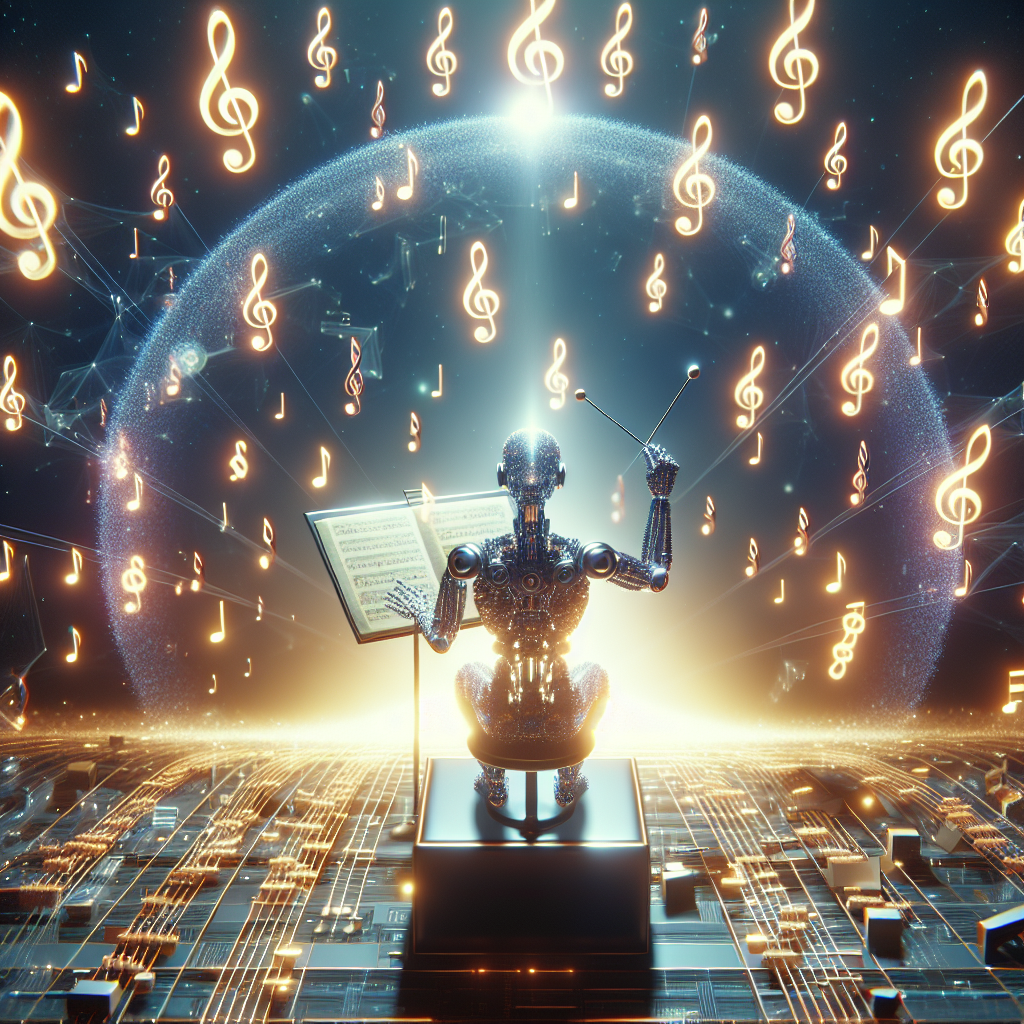The Integration of AI and Machine Learning in Music Composition
Artificial intelligence (AI) and machine learning have been making significant strides in various industries, and the music industry is no exception. In recent years, AI and machine learning have been used to assist in music composition, bringing new possibilities and innovations to the field.
Traditionally, music composition has been a highly creative and subjective process, with composers drawing on their own experiences, emotions, and inspirations to create musical pieces. However, AI and machine learning technologies are now being used to augment and even automate parts of the composition process, leading to the creation of music that may not have been possible otherwise.
How AI and Machine Learning are Used in Music Composition
AI and machine learning are being used in music composition in a variety of ways. One of the most common applications is in generating musical patterns and melodies. By analyzing vast amounts of musical data, AI algorithms can learn the patterns and structures of different musical styles and genres, allowing them to create new compositions in those styles.
Another way AI and machine learning are being used in music composition is in assisting composers with the creative process. For example, AI can analyze a composer’s existing work and suggest new ideas or variations based on their style and preferences. This can help composers overcome creative blocks and explore new directions in their music.
AI and machine learning can also be used to automate parts of the composition process, such as arranging and orchestrating music. By analyzing the structure and instrumentation of a piece, AI algorithms can generate arrangements that complement the composer’s vision, saving time and effort in the production process.
Benefits of Using AI and Machine Learning in Music Composition
The integration of AI and machine learning in music composition offers several benefits to composers and musicians. One of the main advantages is the ability to explore new creative possibilities and push the boundaries of traditional music composition. AI algorithms can generate novel ideas and combinations that may not have occurred to human composers, leading to the creation of unique and innovative music.
Another benefit of using AI in music composition is the ability to save time and effort in the creative process. AI algorithms can analyze and process vast amounts of musical data in a fraction of the time it would take a human composer, allowing musicians to focus on the more creative aspects of composition.
Additionally, AI and machine learning can help musicians overcome creative blocks and provide inspiration when needed. By analyzing a composer’s existing work and suggesting new ideas, AI algorithms can help composers break out of their comfort zones and explore new directions in their music.
FAQs
Q: Can AI and machine learning replace human composers?
A: While AI and machine learning technologies are becoming increasingly sophisticated in music composition, they are not likely to replace human composers entirely. AI can assist and augment the creative process, but ultimately, music composition is a highly subjective and emotional endeavor that requires human intuition and creativity.
Q: How do AI algorithms learn to compose music?
A: AI algorithms learn to compose music by analyzing vast amounts of musical data, such as sheet music, audio recordings, and MIDI files. By studying the patterns and structures of different musical styles and genres, AI algorithms can generate new compositions that adhere to those conventions.
Q: Are there any ethical concerns with using AI in music composition?
A: There are some ethical concerns surrounding the use of AI in music composition, such as issues of copyright and ownership. Since AI algorithms can generate music based on existing compositions, there is a risk of plagiarism and infringement of intellectual property rights. It is important for composers and musicians to be aware of these concerns and take appropriate precautions when using AI in their work.
In conclusion, the integration of AI and machine learning in music composition is opening up new possibilities and innovations in the field. By leveraging the power of AI algorithms, composers and musicians can explore new creative directions, save time and effort in the production process, and overcome creative blocks. While there are still some ethical concerns to consider, the potential benefits of using AI in music composition are vast and exciting.

